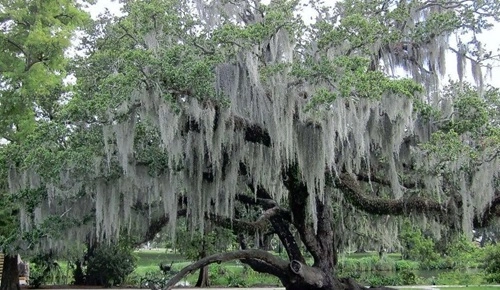No, it is not inherently illegal to pick Spanish moss in Florida, but specific regulations and property ownership rights may make it unlawful under certain circumstances. Picking Spanish moss from public land, protected areas, or private property without permission can lead to legal consequences. Understanding the rules surrounding Spanish moss collection is essential for anyone interested in harvesting this iconic plant.
What Is Spanish Moss?
Spanish moss (Tillandsia usneoides) is an epiphytic plant, meaning it grows on other plants, typically trees, without harming them. It is a hallmark of the Southern United States, often draping over oak or cypress trees. Spanish moss has been used historically for various purposes, including insulation, stuffing, and craft projects.
Legal Considerations for Picking Spanish Moss
- Private Property Rights
- Picking Spanish moss from private property without the landowner’s permission is considered trespassing and theft. Landowners have the legal right to protect the resources on their property, including Spanish moss.
- Public Lands and Parks
- Collecting Spanish moss from state parks, national parks, and other public lands is generally prohibited without a permit. These areas are protected to conserve natural ecosystems.
- Violators may face fines or penalties for removing plants or natural materials from these areas.
- Environmentally Protected Areas
- Certain environmentally sensitive lands, such as wildlife refuges or conservation areas, have strict rules against removing any natural material, including Spanish moss, to preserve the habitat and biodiversity.
- Commercial Harvesting
- Commercial harvesting of Spanish moss may require permits or licenses, depending on the quantity and intended use. Commercial activities without proper authorization can result in legal action.
Potential Legal Consequences
- Fines
- Picking Spanish moss without proper permissions can result in fines ranging from $50 to $500, depending on the jurisdiction and location of the violation.
- Trespassing Charges
- Removing Spanish moss from private property without permission can lead to trespassing charges, which may escalate if accompanied by damage to trees or other property.
- Environmental Violations
- Collecting Spanish moss from protected areas can result in additional penalties under state or federal environmental laws.
Guidelines for Picking Spanish Moss Legally
1. Seek Permission: Always obtain the landowner’s permission before collecting Spanish moss from private property.
2. Check Local Regulations: Review local and state rules regarding the collection of natural materials from public lands or parks.
3. Obtain Permits: For commercial harvesting or large-scale collection, apply for the necessary permits from the appropriate government agency.
4. Avoid Protected Areas: Do not pick Spanish moss from conservation areas, state parks, or other protected lands unless explicitly allowed.
5. Respect the Ecosystem: Harvest Spanish moss responsibly to avoid harming trees or disrupting the local environment.
Related FAQs
Q1. Can I pick Spanish moss from my backyard?
Ans: Yes, you can pick Spanish moss from trees on your own property, as you have ownership rights over the plants growing there.
Q2. Is it illegal to pick Spanish moss in Florida state parks?
Ans: Yes, collecting Spanish moss from Florida state parks is prohibited without a permit, as these areas are protected.
Q3. Can I collect Spanish moss for commercial purposes?
Ans: Commercial harvesting typically requires permits or licenses. Contact local or state authorities to ensure compliance.
Q4. Is it bad for trees to remove Spanish moss?
Ans: No, removing small amounts of Spanish moss does not harm trees. However, excessive removal or improper harvesting methods may cause damage.
Q5. What should I do if I find someone illegally collecting Spanish moss?
Ans: Report the activity to local law enforcement or the managing agency of the land, such as a state park ranger.
Conclusion
While it is not automatically illegal to pick Spanish moss in Florida, collecting it from public, private, or protected areas without proper authorization can lead to legal consequences. Always respect property rights, obtain necessary permits, and follow local regulations to ensure responsible harvesting. By doing so, you can enjoy this natural resource while preserving Florida’s iconic landscapes for future generations.


